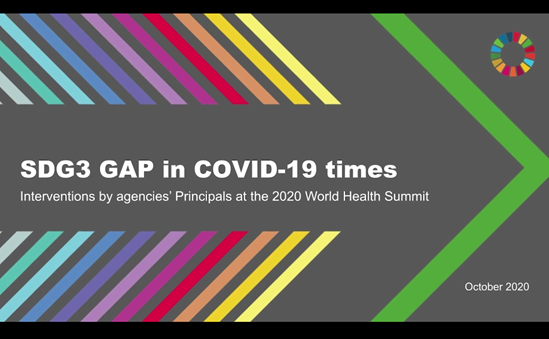By Zayamu Hassan
The World Health Organisation (WHO) and 12 other signatory agencies to the Global Action Plan for Healthy Lives and Well-Being for All (SDG GAP) have concluded plan to formally launch their second progress report.
The report was titled: “Stronger collaboration for an equitable and resilient recovery towards the health-related SDGs.”
Health Reporters learnt that the report presents progress achieved, especially at country level, where SDG3 GAP is being implemented in 37 countries, with its long-term, forward-looking SDG focus and as a platform to support countries’ equitable and resilient recovery from the COVID-19 pandemic.
“The report also identifies challenges encountered over the last year, acknowledging the important roles that countries, agencies’ boards and donors play in setting the right incentives for effective collaboration among SDG3 GAP agencies,” it stated.
The report also highlights ways in which SDG3 GAP agencies are integrating work at country level, reducing fragmentation through joint work in support of national priorities and plans, creating synergies and increasing alignment within the broader health ecosystem – for example, incorporating parts of the Every Woman, Every Child agenda and working jointly with the Health Data Collaborative (HDC) in countries.
Many countries are said to be currently prioritizing primary health care (PHC) and sustainable financing as well as data for improving equity to understand people’s lives and to know where investments need to be made to reach the most left behind.
The statement however, quoted the CEO of Gavi, the Vaccine Alliance, Dr Seth Berkley, as saying that: “The COVID-19 pandemic is exacerbating inequities in many countries. The poorest and most marginalised communities have been hardest hit.
“Today, in the 68 countries Gavi supports, nearly 10 million children still go without any basic, routine vaccines every year. Equitable and resilient recovery will require us to work together to reach these zero-dose children, so that no one is left behind.”
On the other hand, the Executive Director of the Global Fund, Peter Sands, said the global health challenges call for an integrated approach and intensive collaboration between all partners.
“We are committed to working together to deliver more effective and efficient support to countries, build the path towards an equitable and resilient recovery from the COVID-19 pandemic and accelerate progress towards achieving Sustainable Development Goal 3: health and well-being for all,” he said.




